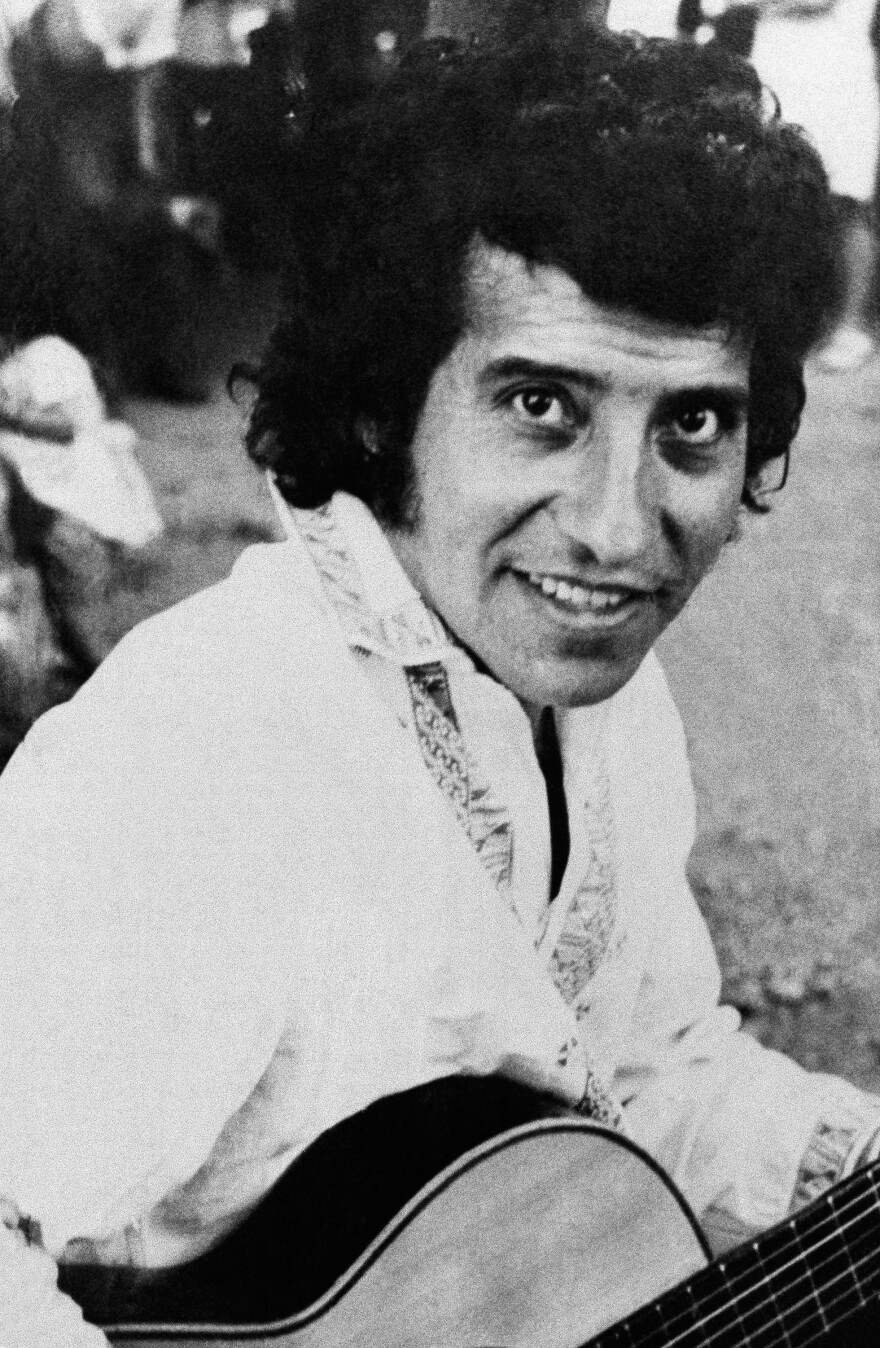After Chile's right-wing coup in 1973, Chilean songwriter and activist Victor Jara was tortured and killed – but he and his music became a powerful symbol of hope in Latin America and beyond.
A new documentary film called The Resurrection of Victor Jara will be playing on Thursday, Dec. 8 at 7:30 p.m. at Main Street Landing in Burlington.
John Summa, the film's producer and a lecturer in economics at the University of Vermont, spoke to Vermont Edition on Tuesday about Jara and the documentary.
"He became an iconic singer-songwriter and defined an era at that time – the '60s, early '70s, [there] would be Victor Jara songs played everywhere," Summa says. "So there were other artists around, but Victor became a leader of this movement that's known as 'Nueva Canción,' which is 'New Song.' It's a folk revival that they had."
Summa notes the parallels between Jara and a number of well-known North American singers like Bob Dylan and Woody Guthrie, as well as Pete Seeger – who actually appears in the documentary.
"[Jara is] sort of a rolled-up version of all of them," Summa says.
Jara's family was poor and from a rural area, but he went on "to become really the voice of Latin America and the voice of his generation, musically," Summa says. "So that's quite a trajectory."
In addition to his music, Jara was also a poet and involved in theater. He even directed a play on Broadway in 1967.
"He became an iconic singer-songwriter and defined an era at that time – the '60s, early '70s, [there] would be Victor Jara songs played everywhere." - John Summa, producer of 'The Resurrection of Victor Jara'
Jara was targeted by the military junta once Augusto Pinochet came to power in Chile in 1973.
"Anybody supporting [Salvador] Allende at the time – the elected president who was deposed in the coup – was subject to ... persecution or political execution," Summa explains.
Jara was one of those vocal supporters of Allende and a "cultural leader" of that movement. In September of 1973, Jara was taken to a stadium in Santiago known as Estadio Chile.
"That's where he was detained and held, tortured for several days and then eventually executed – or, we should say, murdered," Summa says.
In the early aftermath of Jara's death, not many people were speaking out about him and his work, Summa says.

"There was so much fear," Summa says. "If you were caught with any Victor Jara music, you know, you might be yourself disappeared – tortured and/or disappeared.
"They tried to destroy every aspect of his life – musically, culturally. There was an attempt to erase the memory banks."
Yet those attempts at erasure didn't seem to take hold.
"He transmits across generations, continues to do that," Summa says. "The film shows that very vividly in the scene from his reburial in 2009, which is a celebration really, but it's the first time that people can come out and express that love of his music without fear of persecution."
Jara's body had been exhumed for an autopsy related to a court case looking into his death, and Summa says the portion of the film about the reburial is "the most emotional part of the film."
He adds that the film doesn't really dive into the court case details, though they do include a bit at the end about the status of the case.
In terms of Jara's current legacy in Chile, Summa says a comparison would be how children in North America might grow up singing Woody Guthrie songs such as "This Land Is Your Land."
"The school kids are now all singing Victor," Summa says. "They're singing songs in grade school. It's become embedded, really, in the cultural memory banks ... This is part of the resurrection, part of the rebirth of Victor. It's reached that degree of cultural presence."
The stadium where Jara was killed, Estadio Chile, has also since been renamed Estadio Victor Jara, after the activist.
https://www.youtube.com/watch?v=hesTpJ4oGvk
Summa says his interest in telling Jara's story can be traced back to when he was working on a different documentary film in the 1980s.
"That film just immersed me in the music and politics of Central America and Latin America, so it's during that period I encountered the music of Victor Jara and 'New Song' music, which he was a leader of," Summa says.
The artist and music stuck with Summa, he says, and then about 12 years ago, he decided to make a film about Jara.
"North Americans need to know about the Woody Guthrie of South America," he says.
Watch The Resurrection of Victor Jara trailer:






